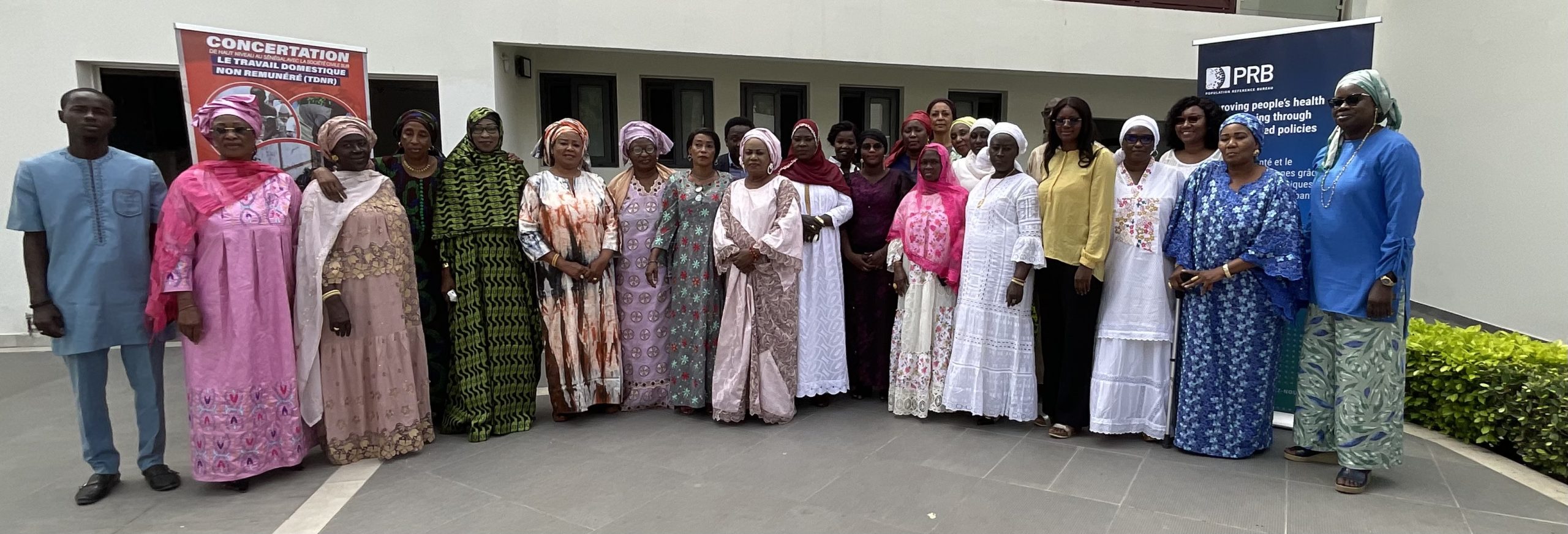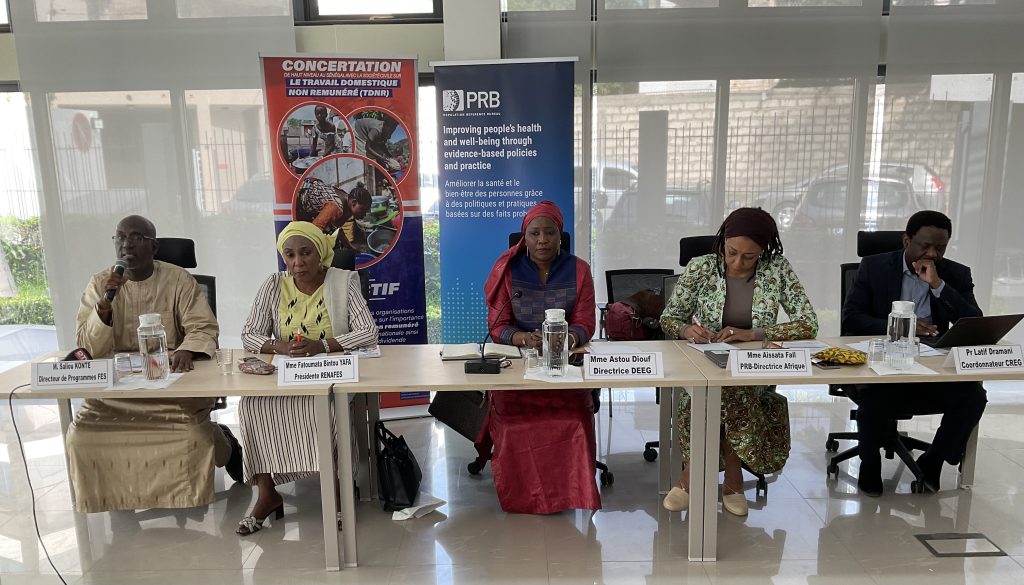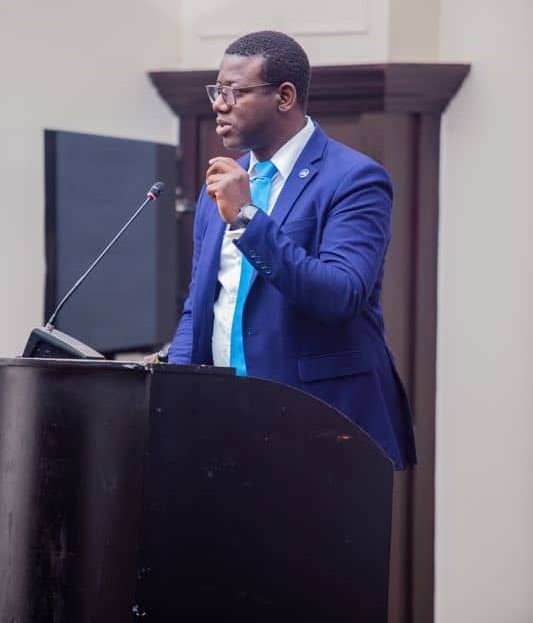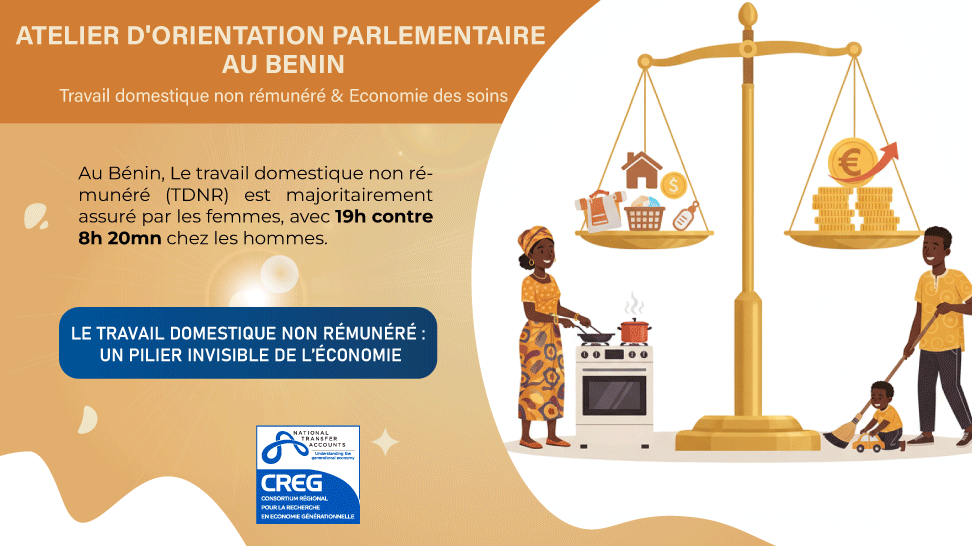Civil society concertation on unpaid domestic work

After the high-level concertation on unpaid domestic work (UDW) with parliamentarians and sectoral ministries, it’s now the turn of civil society to organize a strategic consultation to address the recognition and valorization of women’s UDW. This type of work, often invisible and unrecognized by GDP, is nonetheless essential to the well-being of those who benefit from it. The failure to include TDNR in the calculation of Senegal’s GDP represents an underestimation of national production.
The importance of women’s unpaid domestic work (TDNR) for national economic growth and the realization of a demographic dividend is increasingly recognized. RENAFES plays a key role in issues relating to gender, identity-building and Senegal’s strategic orientations. This meeting, organized by RENAFES in collaboration with the Consortium régional pour la recherche en économie générationnelle (CREG) and the Population Reference Bureau (PRB) as part of the Counting Women’s Work project, is currently taking place at the Friedrich Ebert Foundation.
The overall aim is to raise awareness and inform Senegalese civil society organizations about the importance of the TDNR and its impact on the national economy, as well as on the realization of the demographic dividend, in order to stimulate an informed and constructive debate.

Scheduled for August 1 and 2, the session kicked off with an opening ceremony attended by a number of institutions and representatives. Mr. Saliou KONTE, representative of the Friedrich Ebert Foundation, declared: « There are battles that cannot be fought alone ». Acknowledging that women are the most concerned, he encouraged them to network more to join forces and strengthen their advocacy at the level of public policy.
Mrs. Aîssata FALL and PR Latif DRAMANI then stressed the importance of evidence in the formulation of advocacy and planning with public policies. Ms Fatoumata Bintou YAFA, President of RENAFES, said: « This workshop is a perfect opportunity to meet the commitments of the Senegalese government through the SNEEG, which aims to institutionalize gender in public administrations ». Finally, Ms Astou DIOUF N’GUEYE, representative of the Ministry of Gender Equity and Equality, thanked the various development players present before outlining the normative and strategic framework of the TDNR.
Through presentations, group facilitation and plenary sessions, participants will aim to better understand the importance of TDNR and its impact on Senegal’s economy and society, engage in constructive discussions on the policies and actions needed to recognize and reduce the burden of TDNR, and build the capacity of civil society members to advocate for gender-sensitive policies that value TDNR.
This session aims to create a constructive dialogue between stakeholders and promote effective political dialogue for the recognition of TDNR.


